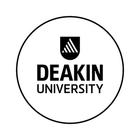Master of Science (Design for Circular Cities)
Master of Science (Design for Circular Cities)
Be ready to step into the job opportunities offered by the booming green economy with the Master of Science (Design for Circular Cities). This course is situated in the cutting-edge arena of sustainable urban development through a new understanding of circularity in the built environment. You will graduate equipped with…
Categories
COURSE DESCRIPTION
Be ready to step into the job opportunities offered by the booming green economy with the Master of Science (Design for Circular Cities). This course is situated in the cutting-edge arena of sustainable urban development through a new understanding of circularity in the built environment. You will graduate equipped with the skills to succeed as a leader in the growing field of urban sustainability. The expertise you gain will enable you to help influence a more sustainable future and create environmentally resilient communities.
Learn how to effectively influence circular city systems with a focus on the design and implementation of urban environments that prioritise sustainable practices, such as the minimisation of waste and efficient use of resources. Through a mixture of core and course elective units you will learn to apply circular economy principles to urban challenges including public space and cultural heritage, green infrastructure, governance and policy, economics and supply chains.
Passionate about a career in building a sustainable future?
With the world adding 1 million people to cities every five days the need for jobs that contribute to environmental preservation and support the transition to more sustainable cities is clear. Deakin’s Master of Science (Design for Circular Cities) prepares you to meet this demand.
Learn by doing through participation in joint projects with our UNESCO Cities of Design international network. Get hands-on experience in the applied design research lab, where you’ll apply design thinking and research methods to real-world problems building innovative thinking and problem-solving skills. Gain in-depth foundational knowledge via core units covering environmental systems, urban life and urban systems, before exploring the topics in urban sustainability that interest you most through electives. Choose topics such as food security, climate change, community development, leadership or finance and data analytics, to name a few.
As issues of sustainability become increasingly central to our built environment, businesses and daily lives, your cutting-edge knowledge and work-ready skills will be highly sought after by employers.
Career outcomes
Architecture, engineering and construction industries are some of Australia’s biggest employers. But our biggest services sector also produces roughly 40% of landfill waste and accounts for 18.1% of Australia’s carbon footprint. The sector must change its practices fast for Australia to meet its commitments to cut emissions.
The Master of Science (Design for Circular Cities) gives you the advanced knowledge and skills to meet this demand for more sustainable development practices. As a graduate you may pursue career opportunities in areas such as:
urban design consultancies (in planning, engineering, architecture, landscape)
urban management and governance
property development and housing
circular design specialists
environmental consultancies
urban regeneration and environmental agencies.
EDUCATIONAL INSTITUTION
Deakin University is ranked in the top 1% of universities worldwide (ARWU). It is a global leader in many areas of study including accounting and finance, business, engineering, education, nursing, sport science, and sport management. It is known for its industry-based learning, with all degrees offering the opportunity for work placements. Deakin has four campuses across the state of Victoria, offering high-quality teaching and first-rate facilities. Our students love studying here – that is why Deakin University has been ranked #1 for course and student satisfaction in Victoria for 13 years (Australian Graduate Survey 2010–2015, Graduate Outcomes Survey 2016–2022 (GOS)).




